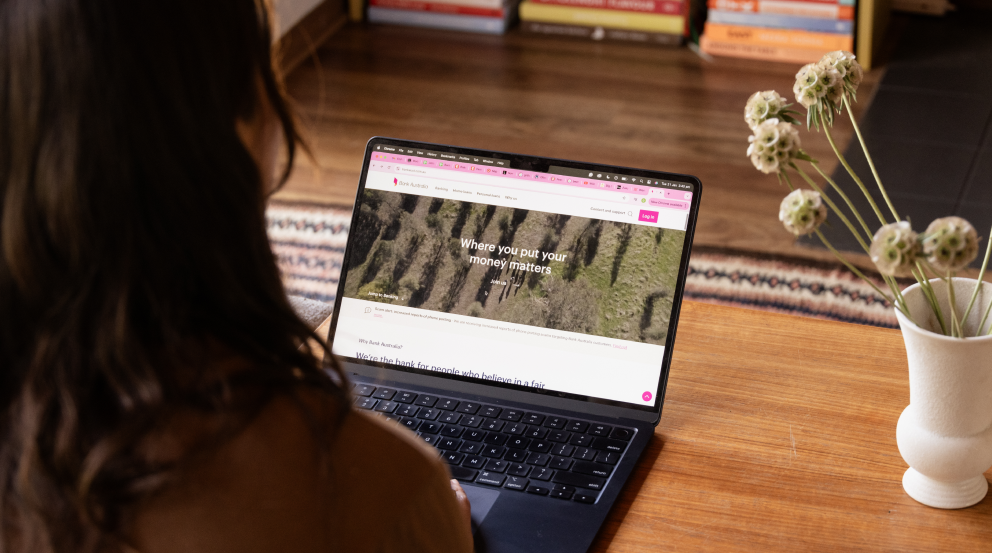For Bank Australia partner Seed, what started as a spark at a youth climate summit is now a mob-led national climate justice movement. We speak to Angel Owen, Seed’s National Director, to learn how Seed is reshaping climate advocacy with storytelling, strength and bold campaigns – mobilising First Nations youth along the way.
Back in 2014, Angel Owen – a proud Butchulla and Woppaburra woman, who was just 14 years old at the time – attended the Australian Youth Climate Coalition (AYCC) National Summit in Canberra on Ngambri and Ngunnawal Country.
“Out of the 200 young people who were there, only five of us identified as Aboriginal and Torres Strait Islander,” Angel says. To address the clear absence of First Nations voices, within not just the room but the broader climate movement, those five people joined together and formed Seed. “It came purely from the need of having our own space to yarn the stories and to yarn impacts, and have that First Nations perspective really dominant through the climate movement.”
Angel has been with Seed ever since, and is now the organisation’s National Director. In that time, Seed has grown from an AYCC project into an independent organisation with a 12-person core team and more than 300 volunteers across the country. Its mission, however, has remained the same: “Building a movement led by and for Aboriginal Torres Strait Islander young people to protect Country, culture and communities from the causes and impacts of climate change,” Angel says.
Bank Australia is proud to support Seed’s work.
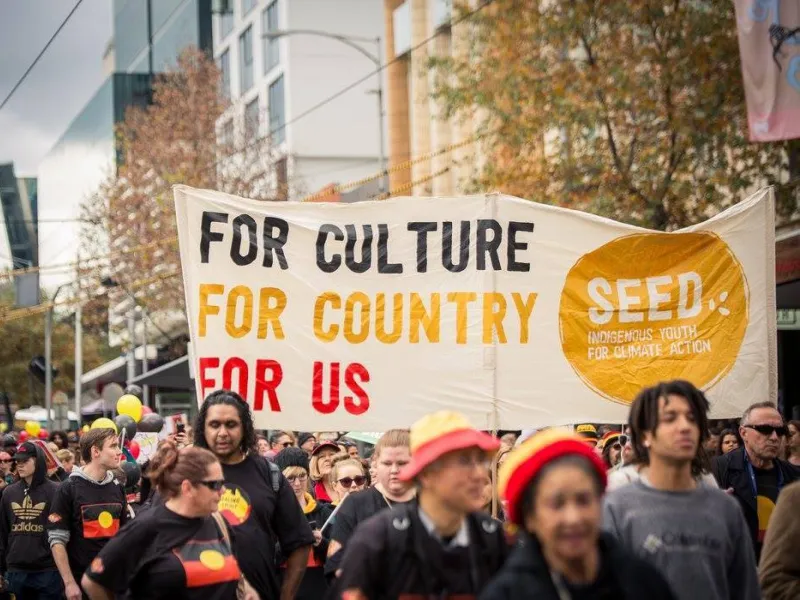
A movement rooted in culture and justice
For Seed, climate change isn’t about future projections – it’s about the here and now. “We want to shift the narrative,” Angel says. “There are going to be intergenerational impacts that will trickle through to the future, but this is impacting our communities, our culture and our connection to Country today.”
Seed’s focus is firmly on climate justice, where social justice and climate change intersect. “We want to acknowledge that the impacts of climate change disproportionately affect First Nations people, not just here in Australia, but globally,” Angel says. “Thinking of young mob and stats around mental health or access to education or access to health care – all of those things are exacerbated by extractive industries and climate change.”
Climate justice also means ensuring a just transition towards decarbonisation, with First Nations wisdom and leadership at the forefront. “We want to make sure no one gets left behind,” Angel says. “There's a part in the journey for everyone to move beyond coal and gas in this country, and it needs to start with First Nations leadership. There’s all this different traditional ecological knowledge that mob right across the country hold. We've looked after Country for millennia, so we know how to care for it and how to live sustainably.”
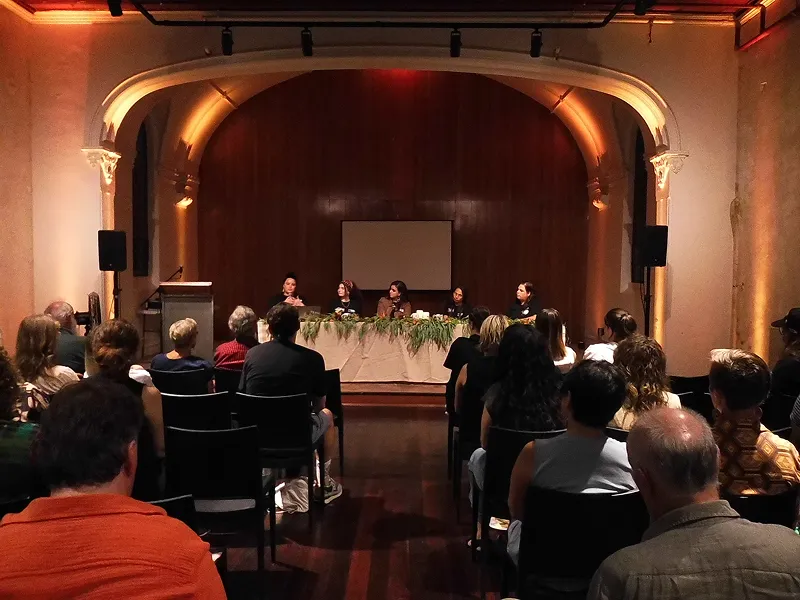
From campaign wins to fostering the next generation
Seed’s work has led to hard-won and deeply felt outcomes for the environment and communities. They were a key part of the alliance behind the successful divestment-driven Stop Adani campaign, and pushed Origin Energy to pull out of the Beetaloo Basin. “I still get goosebumps thinking about the moment the team heard about that win,” Angel says.
Their current campaign, Don’t Frack the Kimberley, focuses on stopping gas fracking in The Kimberley and protecting sacred Country. Alongside that, Seed is also running place-based training summits in Boorloo (Perth) and Gimuy (Cairns) to help grow the next generation of First Nations climate leaders by building both confidence and capacity.
“I almost think of Seed as a bit of an incubator,” Angel says. “We cast the net and bring all these young people in. We’re really just a moment in their lifetime of connection, strength, resilience and potential. Then they go out into the world and do all of these amazing things.”L
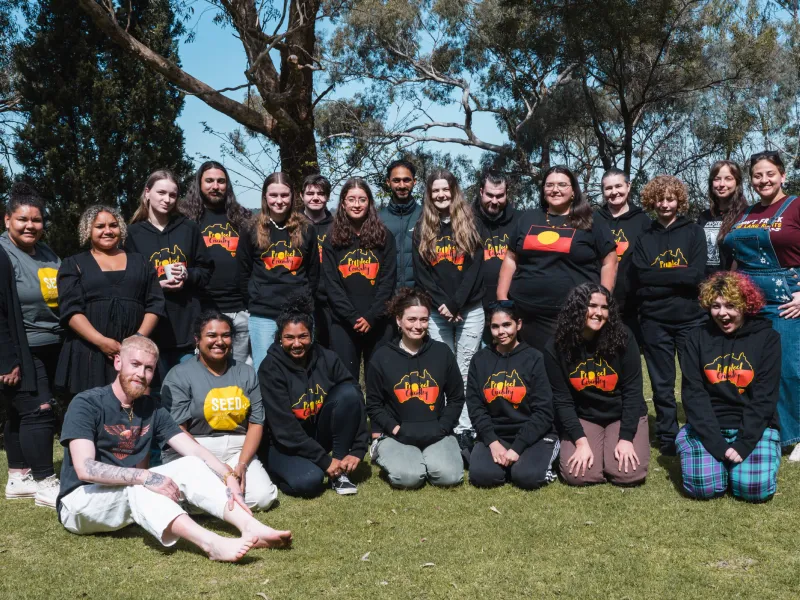
Not your ordinary non-profit
Seed’s internal structures are just as bold as their campaigns. The collective has consciously moved away from traditional non-profit models (that can often result in burnout) towards a more decolonised, community-first approach.
“Our ways of working are quite unique,” Angel says. “We ask, how can we be creative in our policies and procedures to suit the needs of our team? How can we do it in a way that's not extractive, and really uplifts and builds the capacity of our internal team to then be resourced to be able to do the work long term?”
This creativity and flexibility extends to Seed’s storytelling – its most powerful tool to convince mob and allies alike to join the movement. (Check out Seed’s Water is Life story here, or the illuminating content on their Instagram.) “We shift hearts and minds by connecting issues to people and place,” Angel says. “That storytelling is something our people have been doing since time immemorial.”
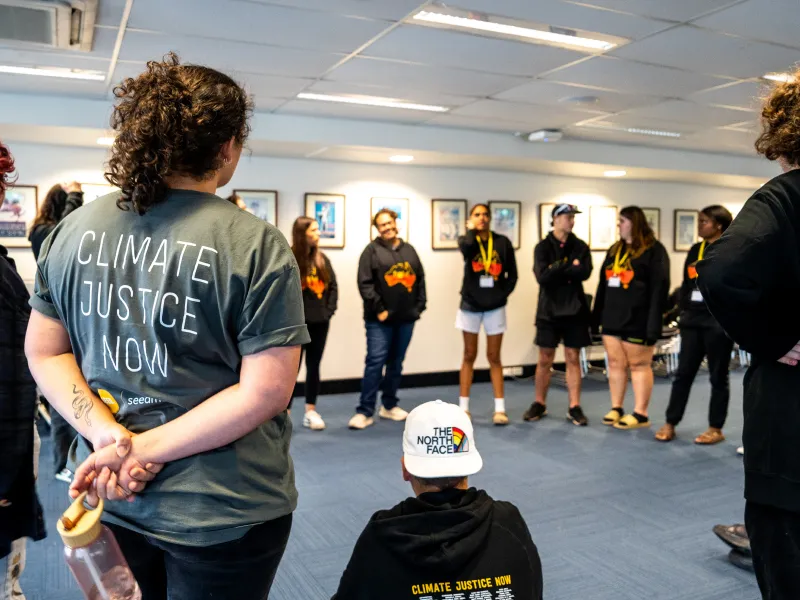
Bank Australia and Seed: A partnership of shared values
Bank Australia has supported Seed’s work through our impact fund since 2021. More than just funding, the partnership is built on shared ethics and mutual respect.
“Having Bank Australia's support during our transition to become independent really allowed us to focus on building strong foundations and setting ourselves up in a way that was sustainable for the organisation, for our campaigns and for the team,” Angel says. “It wasn’t an extractive or a transactional relationship – it felt like genuine support.”
Multi-year funding has made a huge difference. “That long-term support lets us plan confidently, contract staff, and commit to community,” Angel says. “I honestly can’t articulate how important that is.”
As Seed moves into the next phase of its strategic plan, it’s focused on two key areas: mobilising young Aboriginal and Torres Strait Islander people, and running bold campaigns for climate justice. The vision is long-term, because the work is generational.
“At Seed, we often say we’re planting the seeds of the trees we’ll never sit under,” Angel says. “This is a movement, not a moment.”
Learn more about our partnership with Seed and Bank Australia’s impact fund.
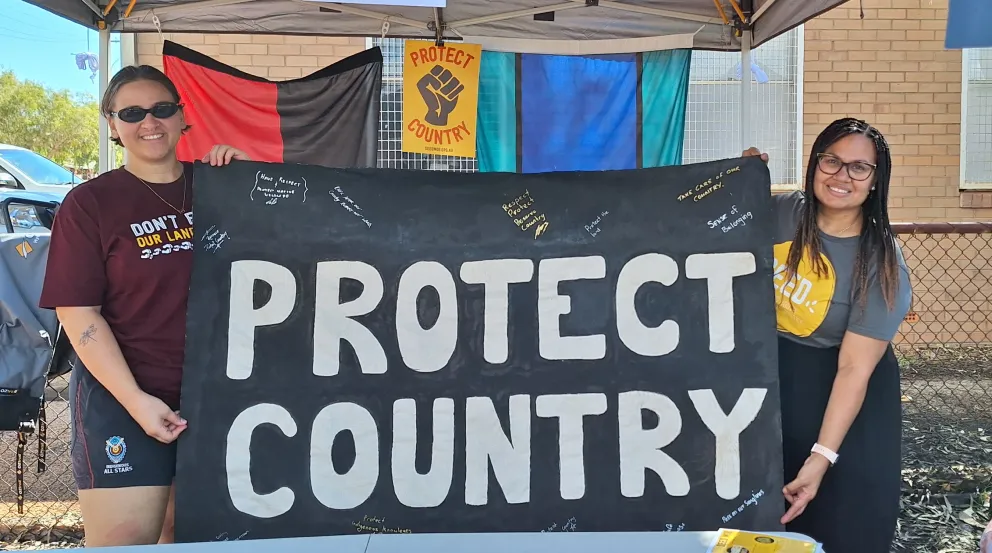



.png)

